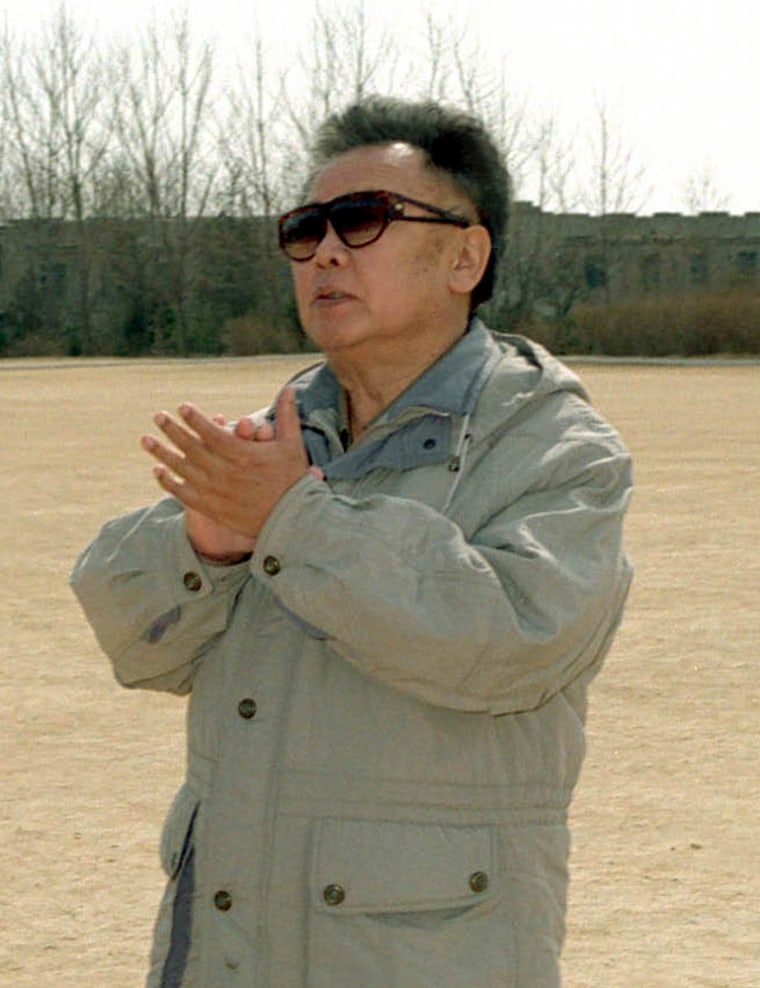The United States and North Korea have resolved a dispute over $25 million in frozen North Korean funds, clearing the way for progress in dismantling the North’s nuclear programs, U.S. officials said Monday.
The U.S. nuclear envoy, Christopher Hill, said six-party talks — which resumed Monday — could now “move on to the next problem, of which there are many.”
U.S. Deputy Assistant Treasury Secretary Daniel Glaser said the funds would be transferred into a North Korean account at the Bank of China in Beijing to be used for education and humanitarian purposes. Glaser said Pyongyang had proposed the arrangement.
The funds, some of which U.S. authorities suspect may be linked to counterfeiting or money laundering by cash-starved North Korea, had held up progress in nuclear disarmament talks.
“North Korea has pledged ... that these funds will be used solely for the betterment of the North Korean people,” Glaser said.
“We believe this resolves the issue of the DPRK-related frozen funds,” Glaser said, using the acronym for North Korea’s formal name — the Democratic People’s Republic of Korea.
Step toward normalizing relations?
The Feb. 13 disarmament agreement gave North Korea 60 days to shut down both its main reactor and a plutonium processing plant, and allow U.N. monitors to verify the closures.
In return, North Korea is to receive energy and economic assistance and a start toward normalizing relations with the U.S. and Japan.
Chinese envoy Wu Dawei told delegates at the opening of the talks that their efforts so far had “created favorable conditions for us to implement our initial actions ... on schedule.”
He added the negotiations still faced “a lot of difficulties and obstacles,” and called on representatives to “make joint efforts to overcome them.” He didn’t give specifics.
This week’s session will focus on reviewing the progress of five related working group meetings held during the past month, discussing specific steps necessary to meet the April 14 shut down deadline, and beginning to talk about what actions would come after it, Wu said.
U.S. allegations in 2002 that North Korea has a secret uranium enrichment program prompted the North to expel U.N. inspectors and eventually led to North Korea detonating its first nuclear device last year.
North 'prepared to cooperate'
The North Korean deposits have been frozen in Banco Delta Asia, or BDA, since Washington blacklisted the tiny, privately run Macau-based bank 19 months ago on suspicion the funds were connected to money-laundering or counterfeiting.
Washington promised to settle the issue by mid-March as an inducement to North Korea to disarm.
Hill said the resolution showed “the DPRK understood our concerns and are prepared to cooperate with us to ensure that this money is used appropriately.”
There was no immediate statement on the agreement from North Korea’s top envoy, Kim Kye Gwan. Those attending Monday’s talks said Kim reiterated earlier comments that North Korea would stop activities at its Yongbyon reactor once the funds were fully released.
Other participants to the Beijing talks — that also include China, Japan, South Korea and Russia — welcomed the breakthrough.
“With the BDA issue resolved, there will be no big obstacle to implementing measures within the 60-day deadline that leads to North Korea’s shutdown of nuclear facilities,” said South Korean envoy Chun Yung-woo.
Chun urged setting a date for a meeting of the six nations’ foreign ministers to follow the mid-April shutdown as agreed last month, according to South Korean diplomats.
Japanese envoy Kenichiro Sasae said the move allowed the talks to “move to the next step.”
Glaser said details on the timing and procedures for transferring the BDA funds into the Bank of China account held by North Korea’s Foreign Trade Bank would be worked out between the North and regulators in Macau, a semiautonomous Chinese territory.
He said the Treasury Department maintained its decision last week ordering U.S. banks to sever ties with BDA because of inadequate financial controls.
